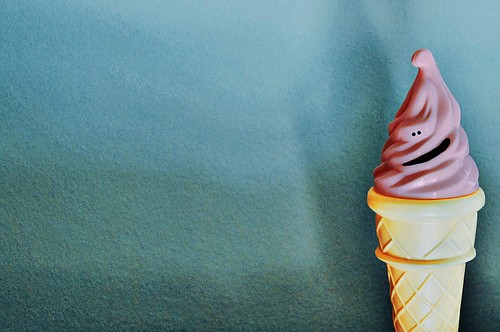- Story Highlights
-
- Dieting: trying to stop yourself from thinking about what you crave just increases your desire, imagining yourself eating what you crave reduces your hunger for it.
Trying to Lose Weight? Imagine Yourself Eating Those Foods that You Crave and You’ll Eat Less.
Researchers at Carnegie Melon University say that by imagining yourself eating something, you trick your brain into getting ‘bored’ of that particular food, and as a result eat less of it.
When on a diet, we may avoid exposure to those sweet and fatty foods that we crave, but according to research out of Carnegie Melon University, we’d be much better off thinking and even imagining ourselves eating those foods!
In a controlled experiment, researchers had some subjects imagine themselves M & M chocolates, 30 times in succession. Other subjects did not imagine themselves eating the chocolate, but instead performed other repetitive tasks, such as inserting 30 coins into a coin machine, in quick succession. The researchers found that people who repeatedly imagined themselves eating a desirable food (M & Ms) reduced their overall consumption of the candies compared to people who did not perform imagery exercises.
These results mesh with previous research which has shown that people who try to stop themselves from thinking about eating actually end up eating more than those who are more conscious of their eating.
Why Does Imagining Reduce Consumption?
Habituation is a process that helps to control how much we eat. We eat less of a substance once we are habituated to it (once we get bored).
Habituation seems to occur similarly when we imagine ourselves eating something and when actually eating something – but for this habituation to occur, you have to actually imagine yourself eating a specific food. Thinking about eating pizza won’t help you to eat less chocolate – and just thinking about chocolate won’t help you eat less chocolate; you have to imagine yourself eating chocolate to habituate.
Future Implications
Researcher Carey Morewedge says that the results show that trying to ignore your cravings just doesn’t work. He thinks that imagery exercises and habituation may prove useful for behavioral interventions beyond food consumption, saying, “We think these findings will help develop future interventions to reduce cravings for things such as unhealthy food, drugs and cigarettes, and hope they will help us learn how to help people make healthier food choices."
The full research results can be found in the journal, Science.


